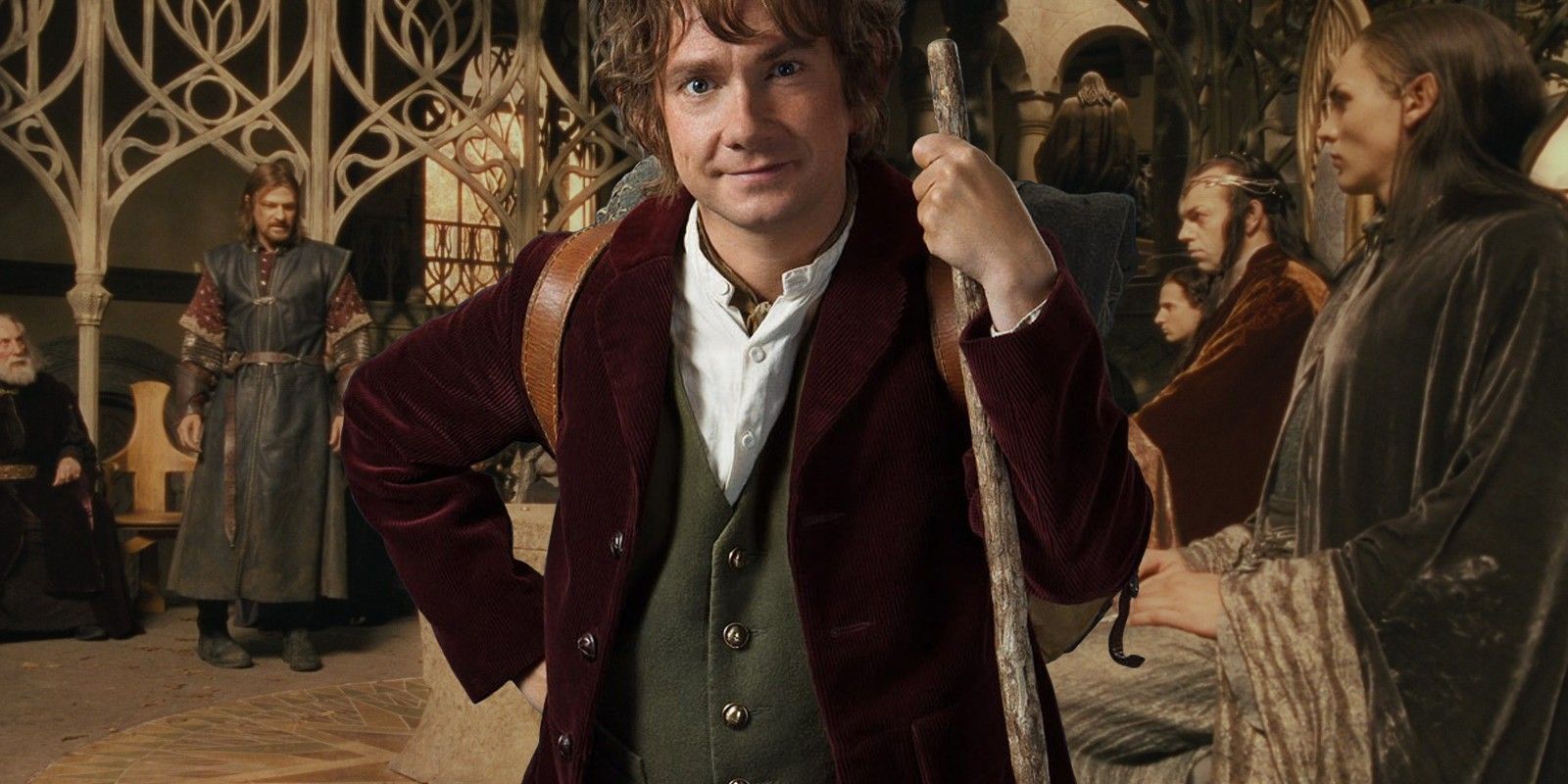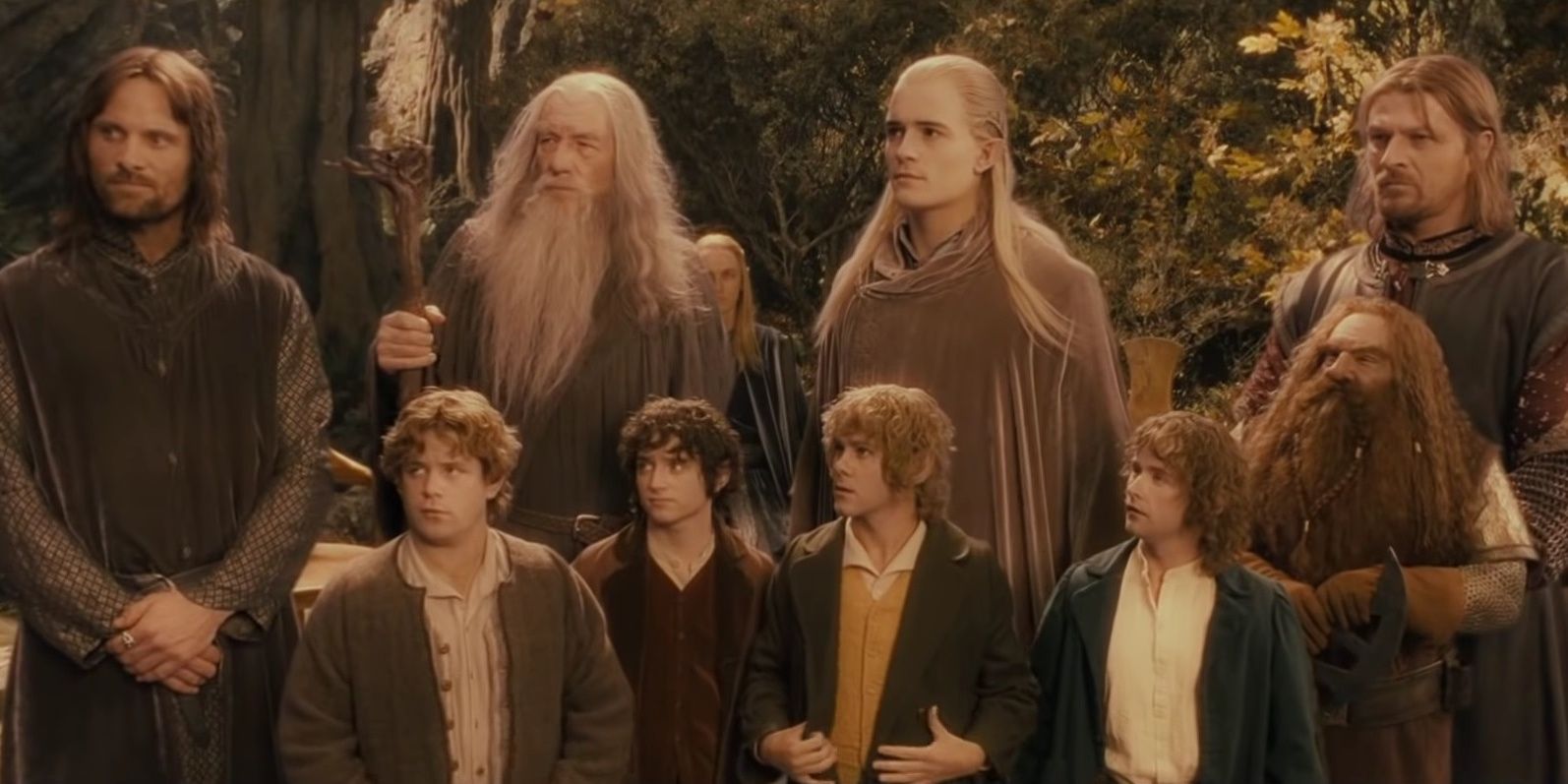A major moment for Bilbo in The Lord of the Rings was left out by Peter Jackson's movies. Elijah Wood's Frodo Baggins is undoubtedly the star of the show in The Lord of the Rings, but Ian Holm still makes a big impression as his uncle, Bilbo. Largely featuring in The Fellowship of the Ring, Bilbo's presence helps bookend the trilogy and link the isolated rural world of The Shire to the wider landscape of Middle-earth. Bilbo allows Jackson to introduce the story of The Lord of the Rings more succinctly than Tolkien's original books were able to, and the aging Hobbit serves as a warning of what holding the One Ring can do to a person.
Bilbo's role in The Lord of the Rings largely follows the outline of the original books, albeit shortened for time, but it's The Hobbit where Bilbo really shines, embarking on an adventure all of his own. Although Tolkien purists (and the author's own family) might disagree, Peter Jackson's The Lord of the Rings is actually a fairly faithful representation of its source material in comparison to many book-to-movie trilogies, with most of the additions or omissions relatively minor. However, The Fellowship of the Ring did take away arguably Bilbo's most important moment from the books.
In Tolkien's original work, Bilbo Baggins attends the Council of Elrond where the Fellowship is formed and the mission to destroy the One Ring is discussed by a congregation of Middle-earth's various races. Bilbo helps Gandalf recount the history of the Ring he once owned but when the council gets to the meat of the matter, Bilbo goes so far as to offer to take the Ring to Mordor himself and destroy it. Gandalf quickly quashes the idea, partly because of Bilbo's age, but more because the powerful relic has already taken its toll on the Hobbit.
Bilbo's offer adds several new shades to the Council of Elrond, as well as the old Hobbit's character, revealing a repressed lust for adventure. Bilbo greatly enjoyed his quest alongside Gandalf and the Dwarves, as recounted in The Hobbit, and is clearly unfulfilled after returning to The Shire. Offering to trek to Mordor highlights how desperately Bilbo yearns for another adventure in his twilight years. Digging a little deeper, the moment also betrays Bilbo's desire to hold the Ring once more. The lure of the trinket still burns within Bilbo and he'd happily face down the wrath of Sauron if it meant another few months in possession of the Ring.
In Jackson's movies, however, Bilbo is entirely absent from the Council of Elrond in Rivendell, and although this means Ian Holm's character doesn't develop as much as in the books, it's easy to understand why the decision was made. Recounting the history of the Ring isn't necessary in the cinematic version of the council, with a prelude sequence at the start of the film making further exposition unnecessary. While Bilbo's offer to take the Ring would've been a nice touch in the Lord of the Rings movies, it does make sense to keep the focus on Frodo and the Fellowship. Bilbo plays a strong supporting role in the movie trilogy, but the Council of Elrond is the moment where main characters such as Legolas, Gimli and Boromir are introduced, and where the chemistry of the Fellowship is first evident on-screen. With plenty more vital matters to cover, it's understandable that Bilbo's offer was deemed surplus to requirements, even if it would've added a deeper layer to the hero of The Hobbit.


